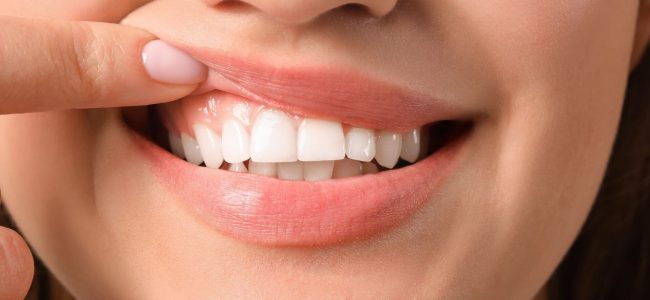Do Gums Grow Around Implants?
When our teeth and gums are healthy, we don’t even think twice about sharing a big smile, but when you have a damaged or missing tooth, you might talk to your dentist about your options to regain your confidence. Implants are one way to replace damaged or missing teeth with a new tooth that is designed to fit right in with all your other teeth.
However, it is just as important that the gums that support your teeth are healthy and able to accommodate this new change. A dental implant involves fixing a new tooth to a metal post that is screwed into your jaw, and then your gums will support the tooth the same way they do the other teeth around it. You might wonder if your gums grow around implants and what that whole process entails. Talk to your dentist about any concerns you might have about your dental implants, and continue reading to learn more about the impact and importance of healthy gums on dental implants.
The Importance of Healthy Gums
Did you know that having healthy gums can significantly decrease your risk of having bad breath? Brushing, flossing, and swishing with mouthwash or an antiseptic rinse all help to support your gums as well as your teeth. On the other hand, plaque that builds up between your teeth can also affect your gums and allow for bacteria to grow, which can end up causing bad breath.
Healthy gums look pink and firm, while unhealthy gums may be a darker shade of red and tend to bleed when you brush or floss. Gums help to protect your teeth and prevent bacteria and diseases from developing in your mouth. Brushing your teeth and flossing every morning and evening can help support healthy gums. Swishing with mouthwash also helps to eliminate bacteria and plaque before it has a chance to build up on your teeth and gums. Healthy gums keep your teeth healthy and protect your roots.
Reasons for Dental Implants
You may find yourself in need of dental implants if you have missing or damaged teeth. While there are many options for how to handle missing or damaged teeth, sometimes dental implants are the best option. Other options include dentures, crowns, and bridges. If you have a sore, damaged, or loose tooth, then you want to visit a dentist as soon as possible to avoid it turning into a bigger problem.
Dental implants can increase your quality of life by replacing damaged or missing teeth and tend to have a high success rate in most patients. In order to get dental implants, you must not have significant gum disease and also have a strong jaw bone that can handle the metal screws that will hold the new teeth in place. Some people also choose dental implants for cosmetic reasons, like improving someone’s smile with a more permanent solution.
How Gums React to Dental Implants
As you heal from getting dental implants, your gums will gradually grow around the dental implants to provide support like they do for your natural teeth. However, your dentist will also monitor your gum growth during your healing and recovery process to make sure the gums do not grow over the implant completely.
You may receive a temporary crown or another type of healing abutment to help ensure the gums support the healing around the dental implant. The healing process for dental implants can take several months, and during that time, your dentist will want to regularly monitor how your gums are reacting to the implant. Dentists use state-of-the-art technologies to find the optimal position for your dental implant and can monitor your gums’ responses to the implant and ensure that you achieve the desired results.
Ideal Dental is dedicated to providing you with the best experience and making sure you have answers to all your questions. Find a location near you and schedule your next appointment with us!
